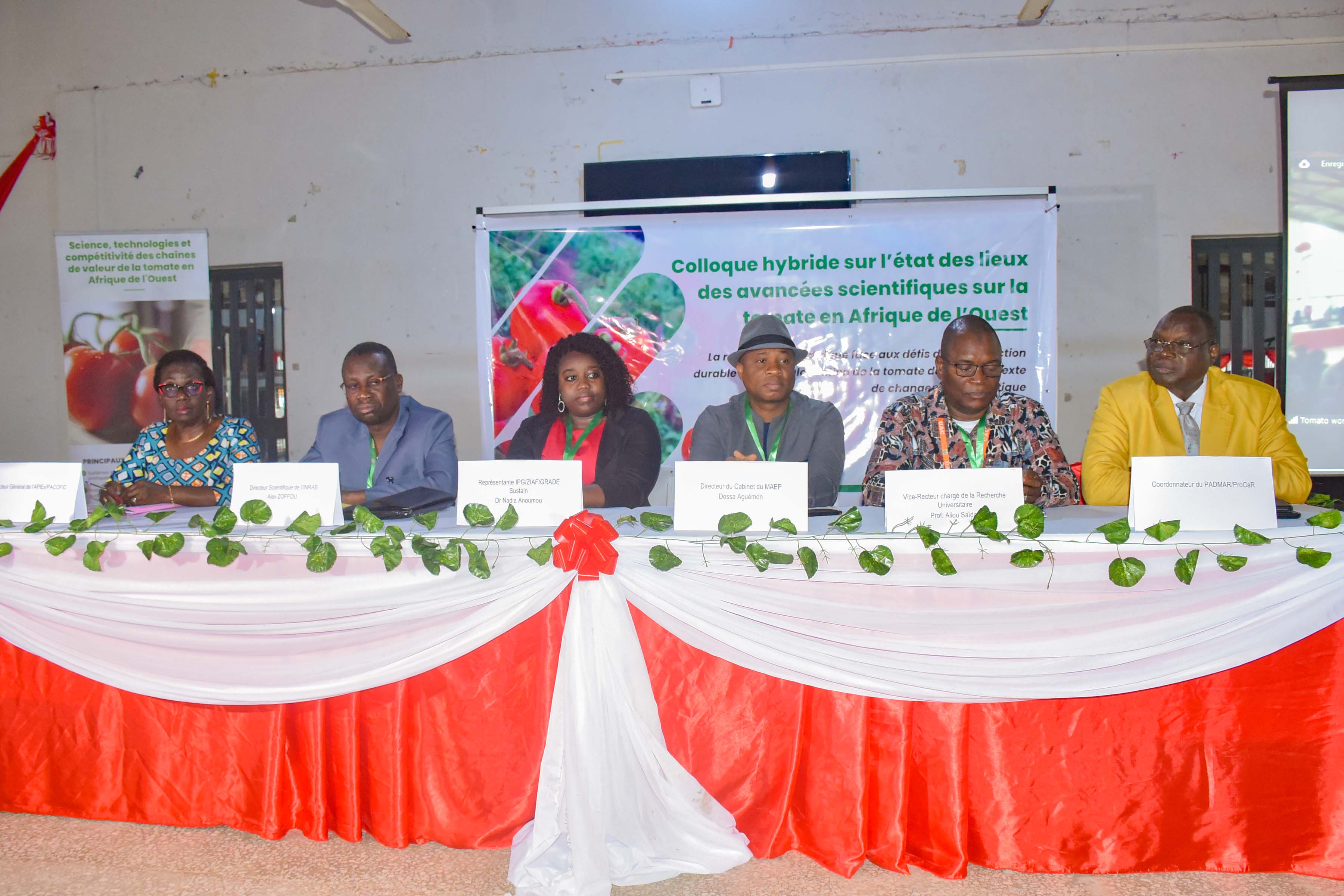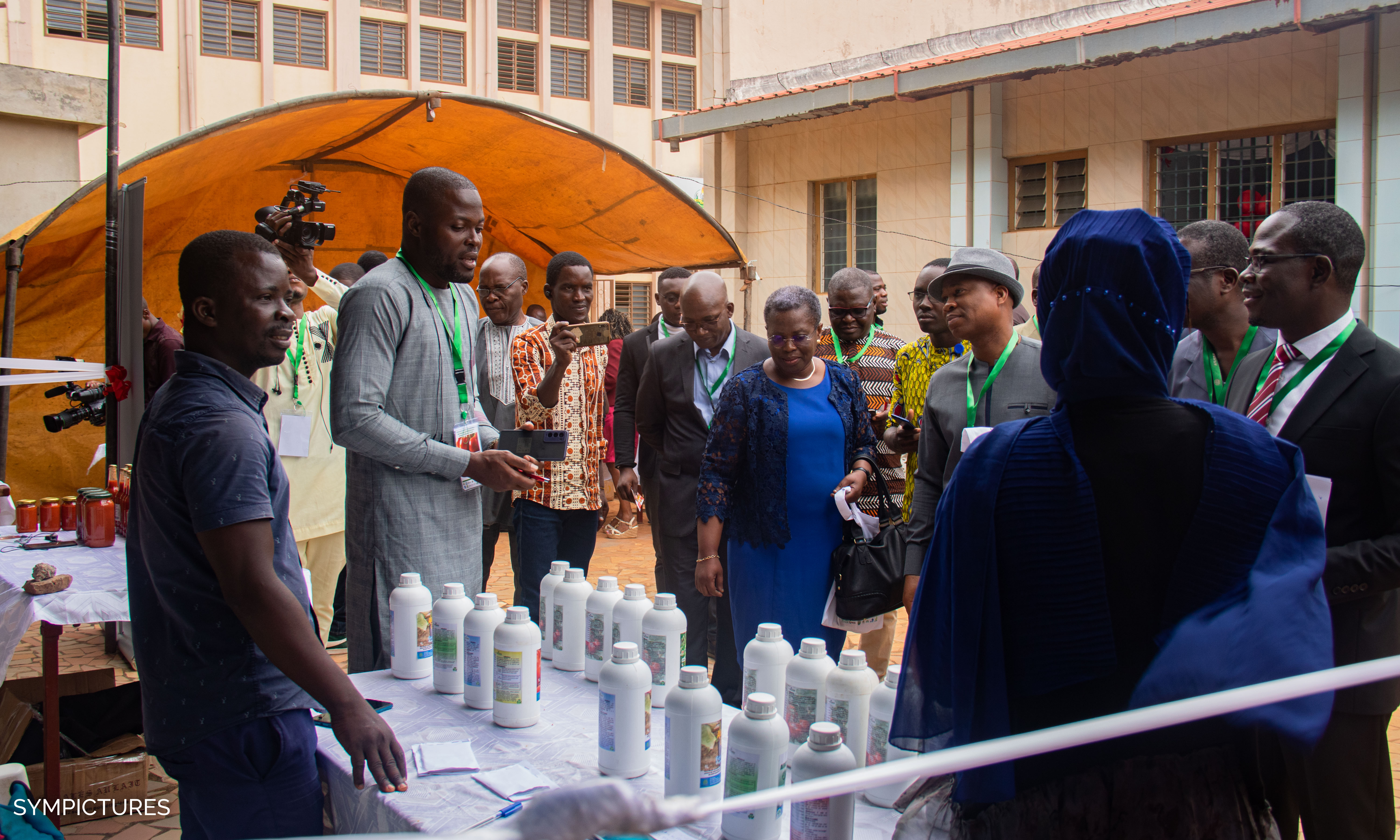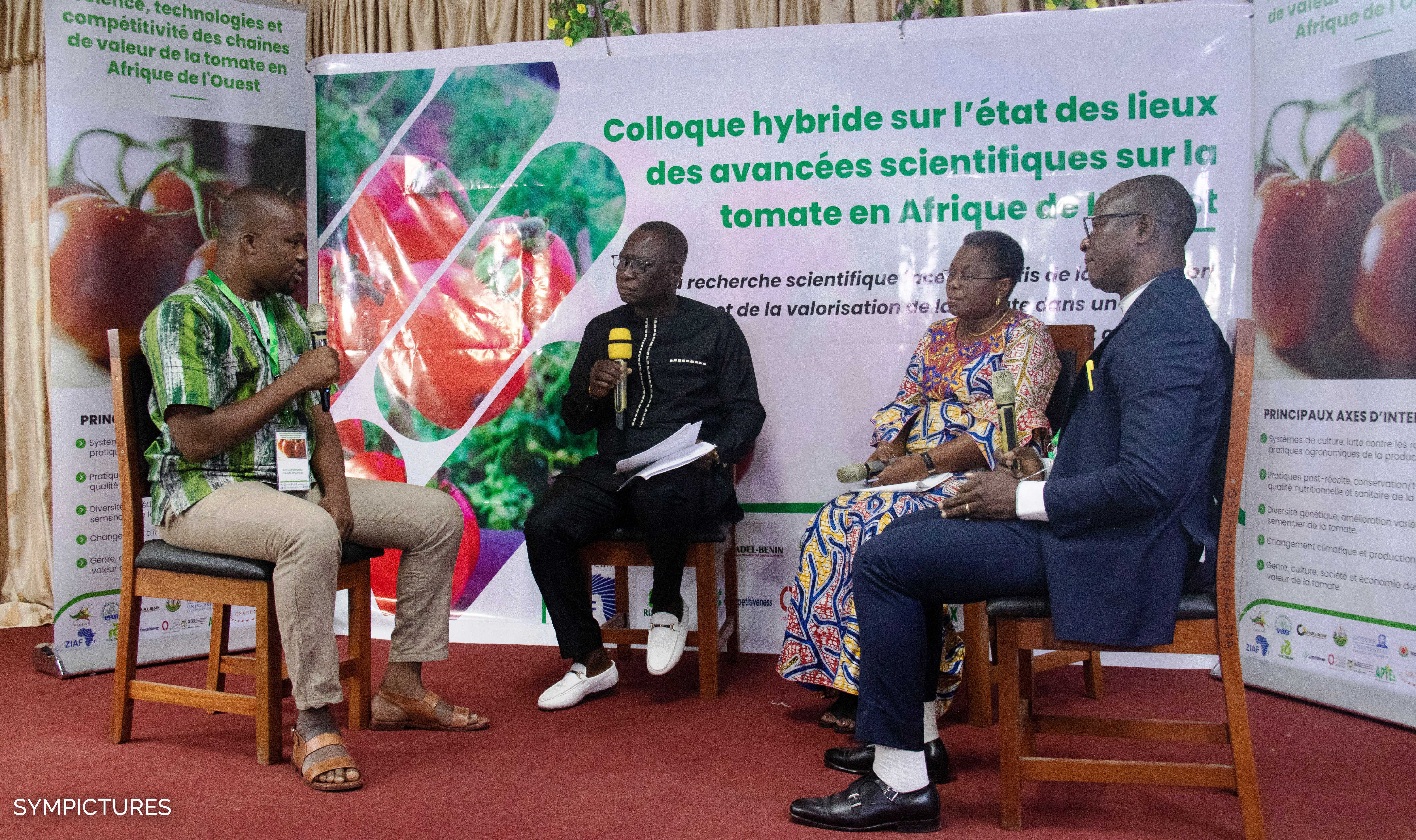First Interdisciplinary Symposium on the state-of-the-art of tomato research in West Africa
July 27-29, 2022 at Université d'Abomey-Calavi (UAC), Benin

From July 27th to 29th, 2022 at the Abomey-Calavi University (UAC) in Benin, 220 junior and senior scientists, politicians, entrepreneurs and farmers from 12 countries gathered for the first time in West Africa around one table to reflect on sustainable tomato cultivation. The overarching topic is "Scientific research facing the challenges of sustainable tomato production and valorisation in a context of climate change in West Africa”. The Symposium is the result of a prospecting trip funded by ZIAF in December 2021 to initiate the cooperation with the Lab GBioS (Laboratory of Genetics, Biotechnology and Seed Science) and CEVADEL (Centre de Valorisation des Denrées Locales) in Benin. The main goal was to get an overview of the Tomato research progress in West Africa and to exchange applied concepts about future measures.
Six keynotes set the framework for 34 lectures over five sessions (Cropping systems, pest management and agronomic practices; Genetic diversity, varietal improvement, and seed systems; Postharvest practices and nutritional quality; Climate change and production; Socio-economic and gender aspects) followed by three panel discussions. Fourteen artisanal enterprises also presented innovations in the tomato sector at a mini-fair.
The symposium revealed the following:
- West African countries face similar challenges in the tomato sector, with Ghana, Nigeria and Burkina Faso having progressed with pest control;
- In Benin, there is little synergy between university researchers on the one hand, and between university and research institutes on the other, so that the issues addressed, and the results are similar, without concrete progress being made on either side. This leads to low research efficiency at national level;
- Research on pest control and genetic diversity is more advanced than previously thought in all countries. On the other hand, little research has been done on cultivation systems, soil management, processing, socio-economic and gender-specific aspects and the challenges of climate change;
- It emerged from the panel discussions that the tomato is a promising sector. However, more synergies between actors, better organization of the latter, creation of outlets and facilitation of export conditions are required. Access to high-quality seeds must be made easier for smallholders, and the local production of organic fertilizers and pesticides must be subsidized and promoted. The crucial issue of packaging availability for converters remains.
Opening ceremony with the participation of representatives of the Agriculture Ministry of Benin and Senegal

Some products at the mini-fair: locally produced tomato-specific organic fertilizer and biopesticides (links) and tomato puree

Panel discussion on the topic "Tomato production and processing in all seasons in Benin" (from left to right): W. Yehouessi (CEVADEL); M. Beria (moderator, WorldVeg); Dr. F. Assogba-Komlan (SG/MAEP); G.G.C. Houenou (R. URA/PRoCAR)
Closing panel discussion on the "Role of research and future actions in the tomato sector" (from left to right): Prof. Dr. E. Achigan-Dako (GBioS); Dr. N. Fassinou (facilitator, GBioS); Dr. T. Mikpon (INRAB); F. Thoto (ACED Benin)
Organising partners in Benin
- Laboratory of Genetics, Horticulture and Seed Science (GBioS), Faculty of Agronomic Sciences, University of Abomey-Calavi
- National Institute of Agricultural Research of Benin (INRAB)
- World Vegetable Center (WorldVeg)
- Center for Valorization of Local Food (CEVADEL)
Financial support in Germany
- Goethe Research Academy for Early Career Researchers: Center Sustain (GRADE Sustain)
- Zentrum für interdisziplinäre Afrikaforschung (ZIAF)
Contact: Anoumou@em.uni-frankfurt.de



